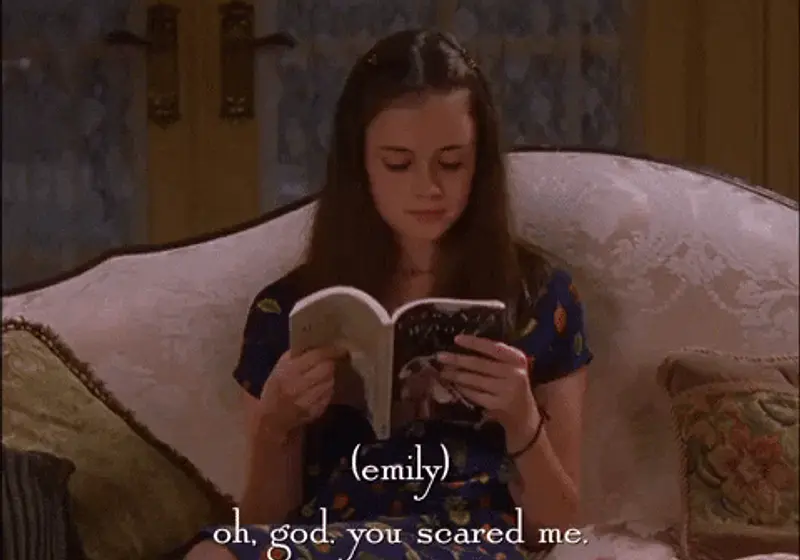“The Great Gatsby” is the second most common book taught to eleventh-grade students, according to “The English Teacher’s Companion.” Those who support the novel's #2 reign do so because the book is about disliking the wealthy and the American dream.
It “captures money's power to corrupt, to let the rich escape from the consequences of their actions,” as Clifton Spargo put it. Those are good reasons to recommend “The Great Gatsby” to friends and colleagues. But those are not reasons for it to be taught in schools.
People are entitled to their own opinions. So, it is okay to loathe the American dream and the wealthy. But that shouldn't be fed to students.
Schools should teach their pupils how to think. Schools should not be telling students what to think through the analogs of a book.
I believe the latter is being done and that “The Great Gatsby”—among others—has been the vehicle for it. The purpose of this article is to give you a different view—a view that your teachers likely have not given you. If you haven’t read it or don’t recall what it’s about, here’s some background:
The author of “The Great Gatsby,” Francis Fitzgerald, viewed the American dream as a greed-driven ambition. In his view, the dream elicits immoral conduct, unhappiness, and disappointment. Fitzgerald used the main character Jay Gatsby’s dream to analogize that view.
Let us slide into your dms 🥰
Get notified of top trending articles like this one every week! (we won't spam you)His Dream Was a Girl
Gatsby met Daisy while he was stationed near her home. They began dating, but Gatsby had to go join the military in a war. At some point, he was supposed to return home, but he ended up in Oxford instead. After being apart for so long, Daisy no longer had it in her to remain faithful to Gatsby.
So, she moved on and married Tom Buchanan. From then on, he decided to make it his life’s mission to win her back and erase Tom from her life. That became his dream.
Gatsby amassed wealth—allegedly through nefarious channels—to impress Daisy. And at every chance he got, Gatsby flaunted his money. He threw extravagant parties where he permitted uninvited strangers to enter his home, and, on one occasion, he even gave Daisy a tour of his wardrobe.
This show of wealth was so impressive that it reduced Daisy to tears. But none of it was enough to upend her life with Tom.
When Tom confronted Gatsby about his infatuation with Daisy, Gatsby responded by saying that Daisy didn’t love Tom. The two gentlemen argued about whether she did, and when pressed on it, Daisy struggled to answer.
After spending years building wealth and buying lavish properties to woo her, Gatsby still couldn’t win her over. It was impossible. Namely, because she and Tom had a child—and children don’t just go away. On top of that disappointment, Gatsby’s thirst for Daisy, his dream, is what got him killed.
Daisy was driving the car that killed Myrtle Wilson, George Wilson’s wife. George was told that Gatsby owned the car, so George killed Gatsby, not knowing that Gatsby wasn’t driving it. But Daisy wouldn’t have been driving Gatsby’s car if Gatsby weren’t dead-set—no pun intended—on wooing her.
In short, in working to attain his American dream, Gatsby made money unethically, spent most of his life trying to impress Daisy (to no avail), and got killed because of it. If it is true that that cynical view of the American dream is what Fitzgerald wanted the reader to take away from his book, then Fitzgerald was a narrow-sighted man.
Take the Quiz: Which Indian city is the perfect holiday spot for you!?
Let's match you with an Indian city that you would love!
That Dream Doesn't Reflect All of Our Dreams
The American dream is subjective. Getting rich to win over a girl—which is what Gatsby did—is not everyone’s goal. Therefore, this book is not a reasonable reflection of the American dream. It is only a reflection of individual stupidity.
Individuals can be foolish in choosing what they aspire. But that has nothing to do with the act of aspiring, or goal-setting, which is all the American dream is about. It is the freedom for everyone to reach their goals if they work hard to get them. Contrary to popular belief, and Fitzgerald’s too, it was “not a dream of individual wealth” at the time the book was written.
It's Because We Aren't As Greedy As You Think
In today’s America, that may be more true given the increased obsession with the middle class. Politicians feverishly court the middle class’s vote, economists reel over their financial stability, and this new generation of progressives are consumed by the middle class’s diversity or lack thereof.
But let's assume I'm wrong. If in the 1920s, when this book was written, the American dream was about material possessions and wealth, one would expect the American dream to still be about those things. Our economy is in better shape than it was in the ‘20s, and Americans have wider access to new and luxurious goods.
We have more reasons to be greedy today than people did in the ‘20s. But that’s not what has happened. Today, for the second time in just sixty years, Americans have become focused on a progressive endeavor toward racial harmony and economic equality.
That doesn’t live with the narrative of big, bad avaricious Americans that only care about money. In fact, the big, bad avaricious Americans Fitzgerald was talking about are among the top percent of earners—which he may have been part of. Regular people can’t afford to attend or host a Gatsby-like party.
Only rich people can, and rich people are not a dime a dozen. So if anything, the critiques of his book are only applicable to the minutiae of Americans. This is more reason to dismiss the notion that “The Great Gatsby” is a legitimate critique of the American dream.
The Author's Gripe Only Applies to the Few
In writing “The Great Gatsby,” Fitzgerald penned an analogous critique of the American dream. But his critique only applies to rich people, a narrow portion of the American population. That is true today, and it was true when he wrote the book, for there was never a time when a supermajority of Americans was rich.
After reading this book, one would think it was the opposite; that all Americans want or live a Gatsby-esque life. As was explained, that is incorrect.
It is a pity that a book laden with such a misguided sentiment is being taught in our schools.










.jpg)






